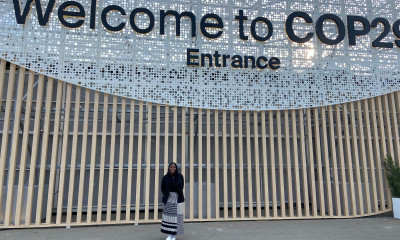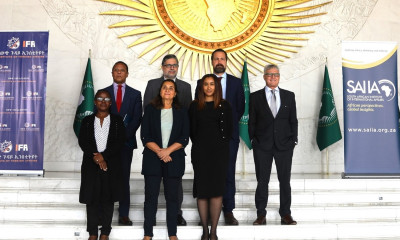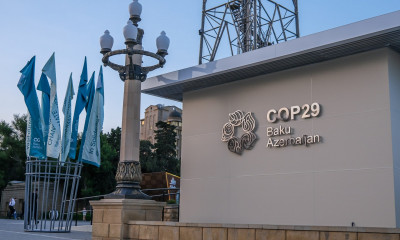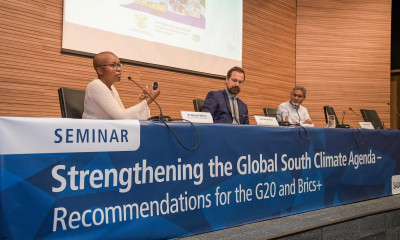Dear Editors and Journalists
This December, for the first time in over 20 years of UN negotiations, a global conference on climate change is expected to achieve a legally binding and universal agreement on climate change. This conference, the twenty-first session of the Conference of the Parties (COP21), will run from 30 November to 11 December 2015, in Paris, France. It is expected to attract close to 50,000 participants including 25,000 official delegates from government, intergovernmental organisations, UN agencies, NGOs and civil society.
Climate change is a complex problem, which, although environmental in nature, has consequences for all spheres of existence on our planet. It either impacts on – or is impacted by – global issues, including poverty, economic development, population growth, sustainable development and resource management. It is not surprising, then, that solutions come from all disciplines and fields of research and development.
The South African Institute of International Affairs held a media briefing on 25 November 2015 on COP21.
SAIIA Expertise available
Please note that SAIIA has limited media interviews available on this topic, but our communications division will endeavour to assist the media as much as possible.
Background on the UNFCCC: The international response to climate change
The United Nations Framework Convention on Climate Change (UNFCCC) emerged from the 1992 Earth Summit in Rio de Janeiro as a means to address global temperature increase and climate change. The UNFCCC went into force in 1994, and since 1995 countries that are parties to this Convention have been meeting annually to negotiate and discuss the international political response to climate change in what is known as a COP or the Conference of the Parties. The Convention currently has 196 parties.
This year, as the 21st session of the Conference of the Parties (COP21) to the UNFCCC convenes in Paris, the stakes are high for this two-week meeting. Delegates are expected to reach the first ever universally legally binding agreement on climate change with the aim of keeping global warming below 2°C. The mandate of COP21 is to adopt ‘a protocol, another legal instrument or an agreed outcome with legal force under the Convention applicable to all parties,’ that will go into effect from 2020.
The UNFCCC secretariat supports all institutions involved in the international climate change negotiations, particularly the Conference of the Parties (COP), the Conference of the Parties serving as the meeting of the Parties (CMP), the subsidiary bodies (which advise the COP/CMP), and the COP/CMP Bureau (which deals mainly with procedural and organizational issues arising from the COP/CMP and also has technical functions). The question of what happens beyond 2020 was answered by Parties in Durban in 2011.
SAIIA Resources:
SAIIA opinion articles on the subject:
- Raising the level of ambition towards a COP 21 outcome through nationally-determined mitigation pledges
- Climate Geopolitics: an Opportunity for Africa to Become a Trailblazer?
- BRICS and climate change
Research Documents:
- Video: COP-20 and Climate Change in Africa (December 2014)
- SAIIA Policy Insights: Aligning Sustainable Development Goals with climate-resilient growth (October 2015)
- CIGI/SAIIA Policy Briefing, Global sustainability, climate change and finance policy: A southern African perspective (September 2015)
- SAIIA Policy Briefing, Advancing Africa’s Position on Global Climate Finance (June 2015)
- SAIIA Policy Briefing, Climate finance: lessons from Rwanda (June 2015)
- SAIIA Occasional Paper, Southern Africa’s Dryland Forests, Climate Change and the Water–Energy–Food Security Nexus (June 2014)
- SAIIA Policy Briefing, COP 17: What Role for SA as an Agent for Change? (November 2011)
- SAIIA Policy Briefing, Placing fisheries on COP 17 Agenda (November 2011)
For more information or to arrange for interviews please contact:
Hopewell Radebe
SAIIA Communications Manager
Tel: +27 (0) 83 582 1734
Email: media@saiia.org.za






